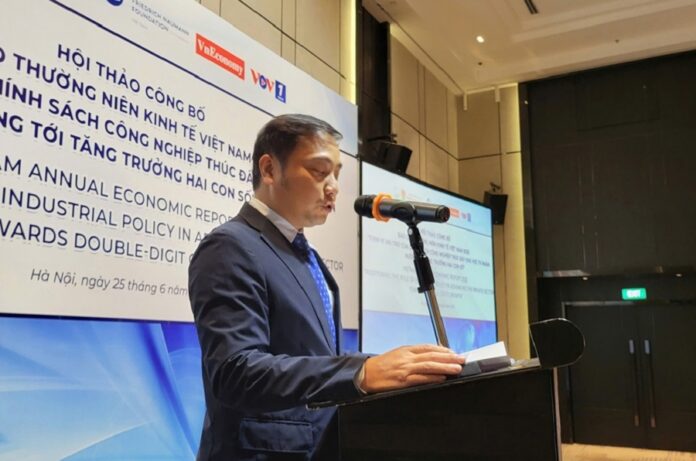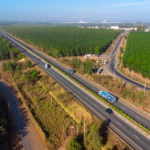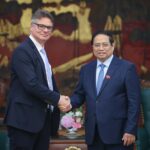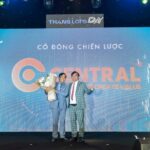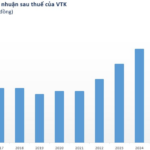On June 25, 2025, in Hanoi, the University of Economics and Business (UEB) of the Vietnam National University, Hanoi, in collaboration with the Friedrich Naumann Foundation Vietnam, hosted a workshop to launch the Vietnam Annual Economic Report 2025. The event was graced by the presence of over 200 guests, including leaders from various ministries, policymakers, scientists, international organizations, and the press.
ASSERTING THE ROLE OF THE PRIVATE SECTOR
Speaking at the workshop, Prof. Dr. Dao Thanh Truong, Vice President of Vietnam National University, Hanoi, commended the choice of theme for this year’s report as both strategic and challenging. Achieving double-digit growth is not a far-fetched ambition but a necessity for Vietnam to swiftly escape the middle-income trap, seize the “golden population window,” and reposition itself on the global economic map.
This report not only underscores the significance of the private sector but also signifies the commitment of the University of Economics and Business, Vietnam National University, Hanoi, to accompany relevant authorities in realizing the goals set forth in Resolution No. 68-NQ/TW of the Politburo.
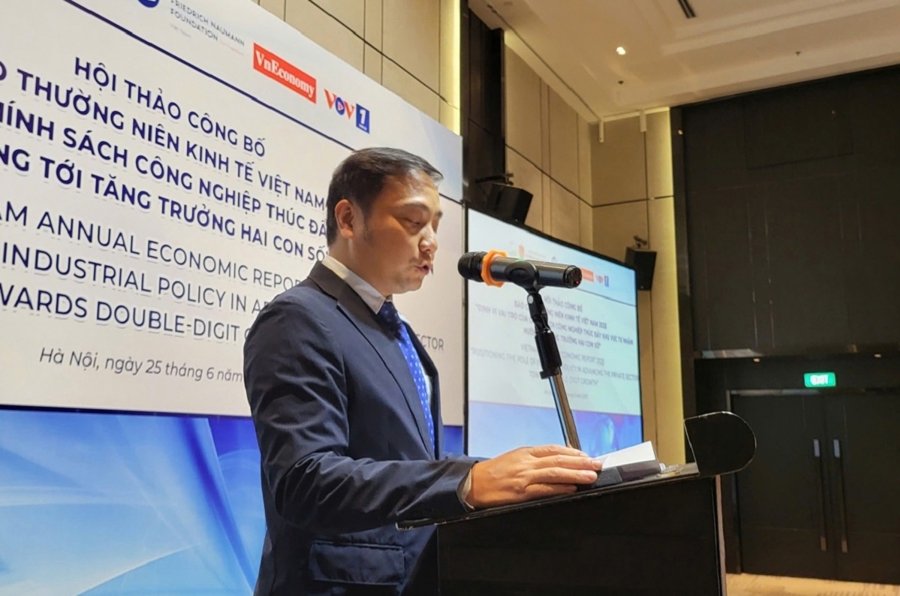
The Vietnam Annual Economic Report 2025 offers a comprehensive overview, including a global economic panorama for 2024 and the first half of 2025, insights into major economies closely linked to Vietnam, economic prospects for 2025, and an analysis of recent trade tensions and their implications for Vietnam and its partner countries.
It provides a thorough examination of Vietnam’s economic landscape in 2024 and the first half of 2025, covering industrial production, inflation, monetary supply, finance, institutional reforms, and significant policies of the Party and the Government. Additionally, it delves into tariffs and risks arising from trade tensions during this period.
The report identifies Vietnam’s growth drivers for the next phase by comparing Vietnam’s growth model (from both the supply and demand sides) with that of East Asian countries, including Japan, South Korea, Taiwan, and China, during their high-growth periods, along with policy lessons from these nations.
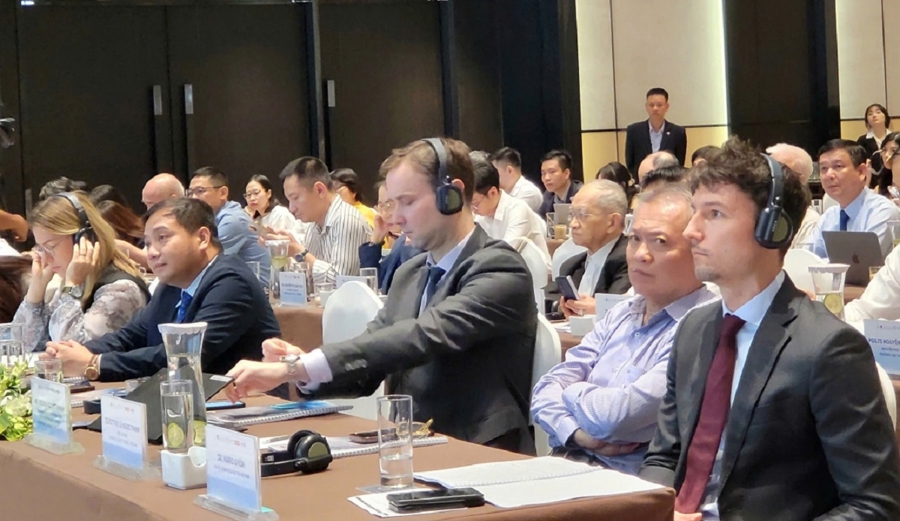
The report also presents an analysis of Vietnam’s industrial policy, highlighting achievements and challenges, along with an assessment of the private sector’s development. Based on these insights, it proposes industrial policies to foster the growth of the private sector.
The Vietnam Annual Economic Report is a product of UEB’s 17-year tradition of independent and objective analysis of Vietnam’s economic development, providing scientific foundations for macroeconomic policy formulation and selective discussions on significant and specialized economic issues facing the country.
NEW INDUSTRIAL POLICY TO UNLEASH GROWTH DRIVERS
During the workshop, economic experts delved into Vietnam’s industrial policy, highlighting achievements and challenges, and assessed the development of the private sector. They then proposed industrial policies to promote the growth of the private sector.
According to Prof. Dr. Nguyen Truc Le, Secretary of the Party Committee and Chairman of the Board of the University of Economics and Business, Vietnam National University, Hanoi, amidst a global economy fraught with uncertainties, from geopolitical conflicts to trade protectionism, disrupted supply chains, and escalating financial risks, Vietnam’s economy aspires for double-digit growth. To achieve this, in addition to traditional approaches like investment incentives, we need to adopt a new perspective: repositioning the role of industrial policy to propel the private sector forward.
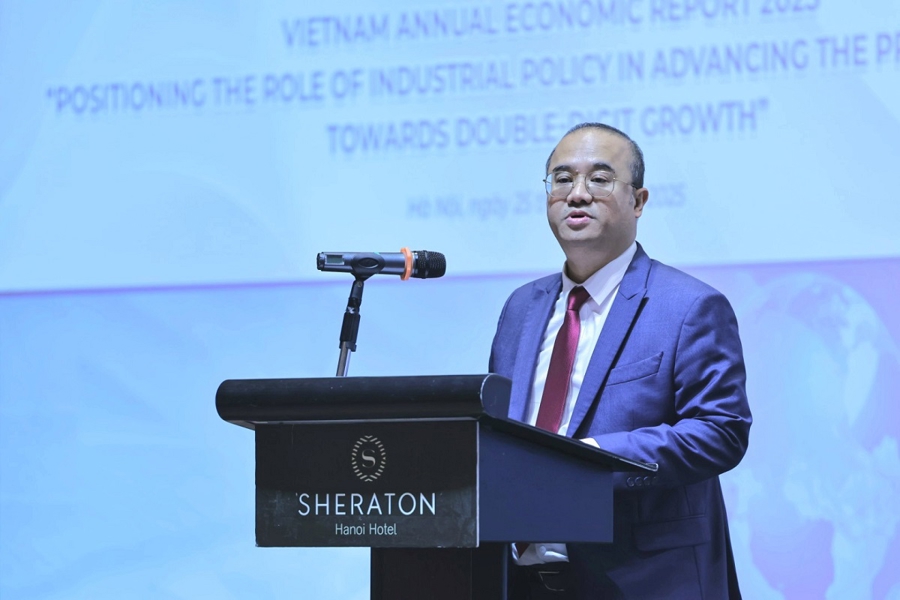
“Industrial policy should not merely be a sectoral policy tool but a strategic enabler for businesses, especially the private sector, to thrive sustainably,” emphasized Prof. Dr. Nguyen Truc Le.
With Vietnam’s economy in need of a strategic boost to surpass average growth rates, Resolution No. 68-NQ/TW marks a pivotal moment in institutional reform. It embodies a long-term vision and innovative approach, placing the private sector at the heart of industrial policy.
During the workshop, economic experts from Vietnam and abroad engaged in discussions on Vietnam’s economic growth in 2025 and prospects for the 2026-2030 period. They also deliberated on challenges and proposed solutions for Vietnam to attain its goal of 8% growth in 2025 and maintain double-digit growth in the subsequent years.
Contemporary industrial policy should be creative, fostering innovation and sustainable development. Notably, the manufacturing industry remains pivotal, contributing over 24% to GDP and more than 80% of export turnover. Therefore, strengthening public-private partnerships, encouraging investments in high-value segments, and promoting localization are imperative.
Prof. Dr. Nguyen Truc Le underscored the necessity to proactively adapt to emerging trends such as digital transformation, green transition, and the restructuring of global supply chains. Industrial policy should be forward-looking, creating momentum, removing obstacles, and supporting business development, especially in foundational sectors like new materials, smart manufacturing, renewable energy, and medical equipment.
The vision for 2030 is to propel Vietnam’s private sector into the top 3 in ASEAN and top 5 in Asia in terms of technology and innovation, doubling the number of internationally competitive enterprises compared to 2025. The spirit of Resolution No. 68 conveys a clear commitment: “Placing private enterprises at the center of policy, industry as the foundation, and innovation as the growth axis.”

Concurring with this view, Prof. Dr. Dao Thanh Truong asserted that Vietnam is embarking on a new era of development, fraught with opportunities and challenges. Amid the imperative to enhance national competitiveness, transform the growth model, and keep pace with global trends like digital transformation, green economy, and supply chain restructuring, repositioning the role of modern and effective industrial policy is more crucial than ever. Specifically, the focus should be on leveraging industrial policy to propel the private sector.
Industrial policy transcends its purely technical definition and emerges as a strategic tool for a developing state. It unleashes growth drivers, guides resource allocation, fosters innovation, and fosters the formation of globally competitive private enterprises.
Given the current context, where the private sector contributes over 50% of GDP and more than 85% of non-agricultural employment, modern industrial policy must incorporate a market vision, the guiding role of the state, and mechanisms to empower domestic private enterprises. These policies will enable private businesses to seize opportunities, expedite digital transformation, optimize operations, enhance production efficiency, expand markets, and significantly contribute to the nation’s overarching goal of attaining double-digit growth. This ambitious yet attainable goal hinges on the formulation of astute strategies, policies, and solutions.
The University of Economics and Business (UEB) is one of the leading centers in Vietnam for training and research in economics, business, and management under the Vietnam National University, Hanoi. UEB has been at the forefront, making significant contributions to the impressive achievements of the Vietnam National University, Hanoi, in the QS World University Rankings 2026, climbing over 100 places to rank in the 761-770 group globally (the highest ranking ever). This attests to the outstanding performance in the fields of Economics, Business, and Management, Economics and Econometrics, Accounting and Finance. These are powerful testaments to the affirmation of training quality, international academic reputation, and commitment to sustainable development of the University of Economics and Business, Vietnam National University, Hanoi.
“Cracking Down on Opportunists: Prime Minister Addresses Gold and Foreign Currency Speculation”
On June 23, Prime Minister Pham Minh Chinh chaired a meeting of the Government’s Standing Committee with ministries and sectors to assess the situation and devise flexible, timely, and effective response measures to the evolving conflict in the Middle East and recent global developments.
“Ho Chi Minh City Provides a Helping Hand: VND 350,000 Billion in Support for Businesses”
The implementation of the connecting program between banks and enterprises in the State Bank’s Region 2 has led to remarkable achievements. As of now, the program has facilitated a remarkable near VND 350,000 billion in lending, reflecting a 6.35% increase compared to the same period last year. Notably, the disbursement of preferential credit packages has reached an impressive 66.1% of the total package size.
“US Conglomerate, a Top Global Player Since 1996, Eyes $2-3 Billion Manufacturing Expansion in Vietnam”
On June 20, Vietnamese Prime Minister Pham Minh Chinh met with Mr. Antoine Colin, Senior Vice President and Global Head of Digital Transformation and Supply Chain of HP Inc. This meeting underscored the importance of digital transformation and supply chain resilience in today’s global economy.


























